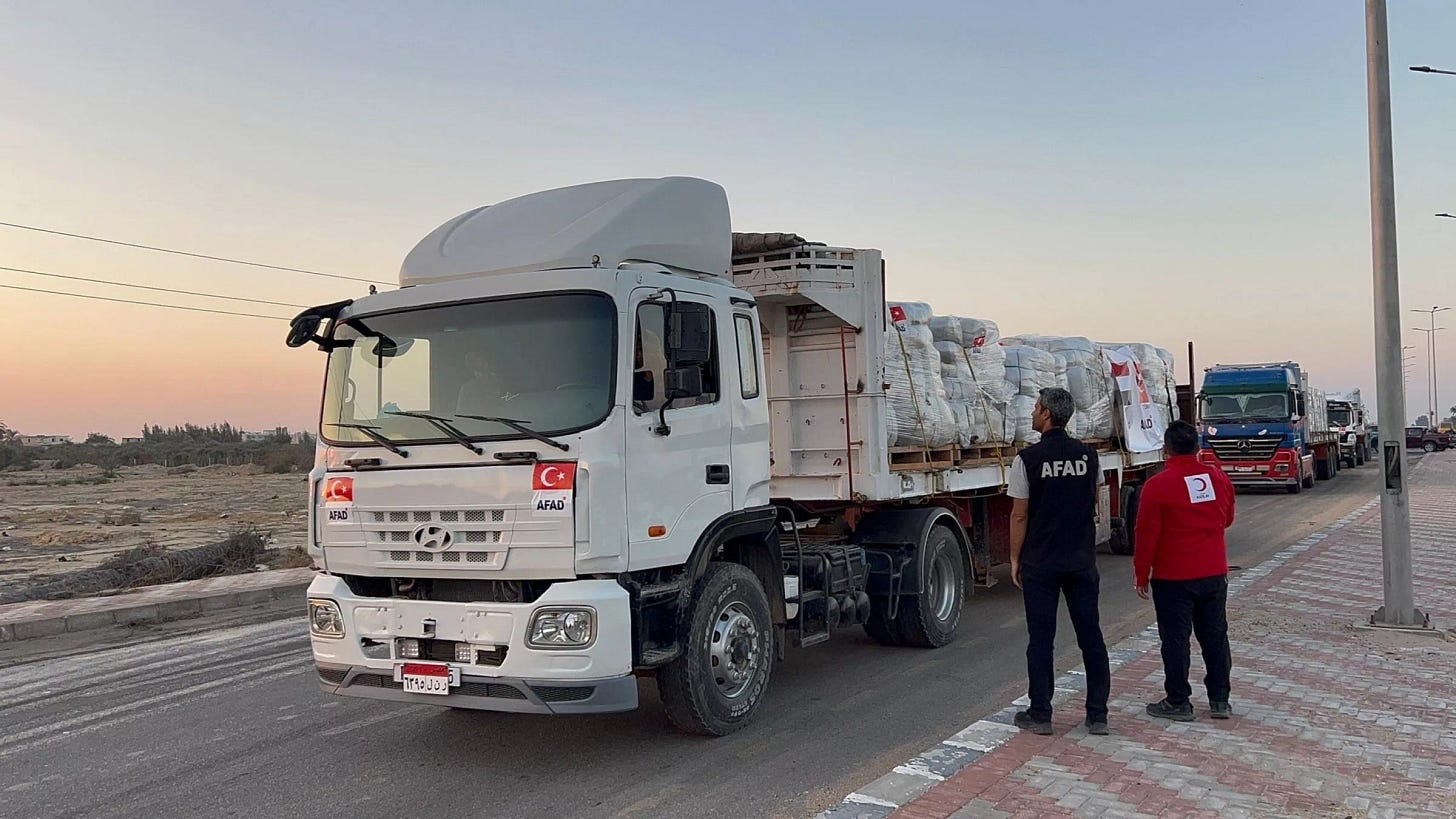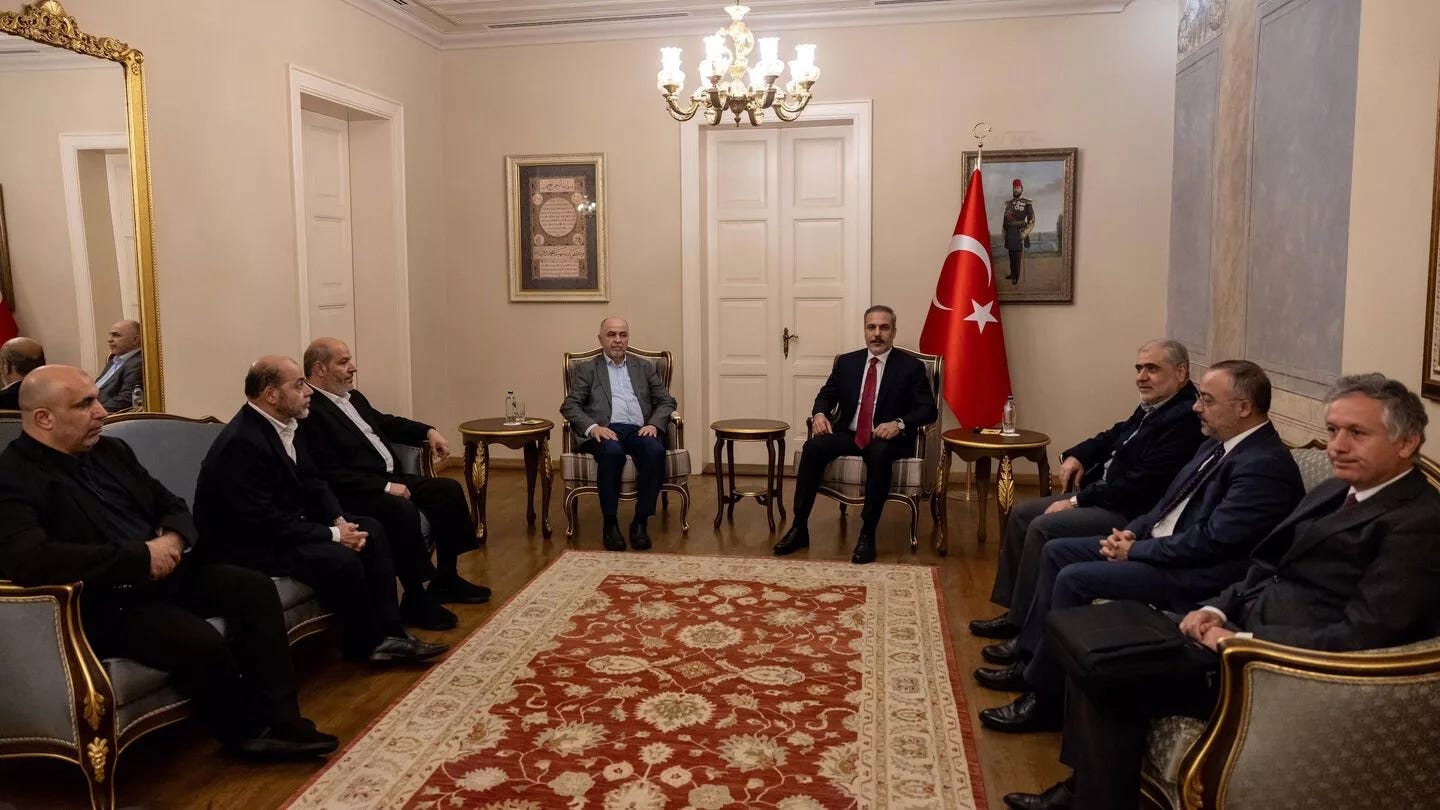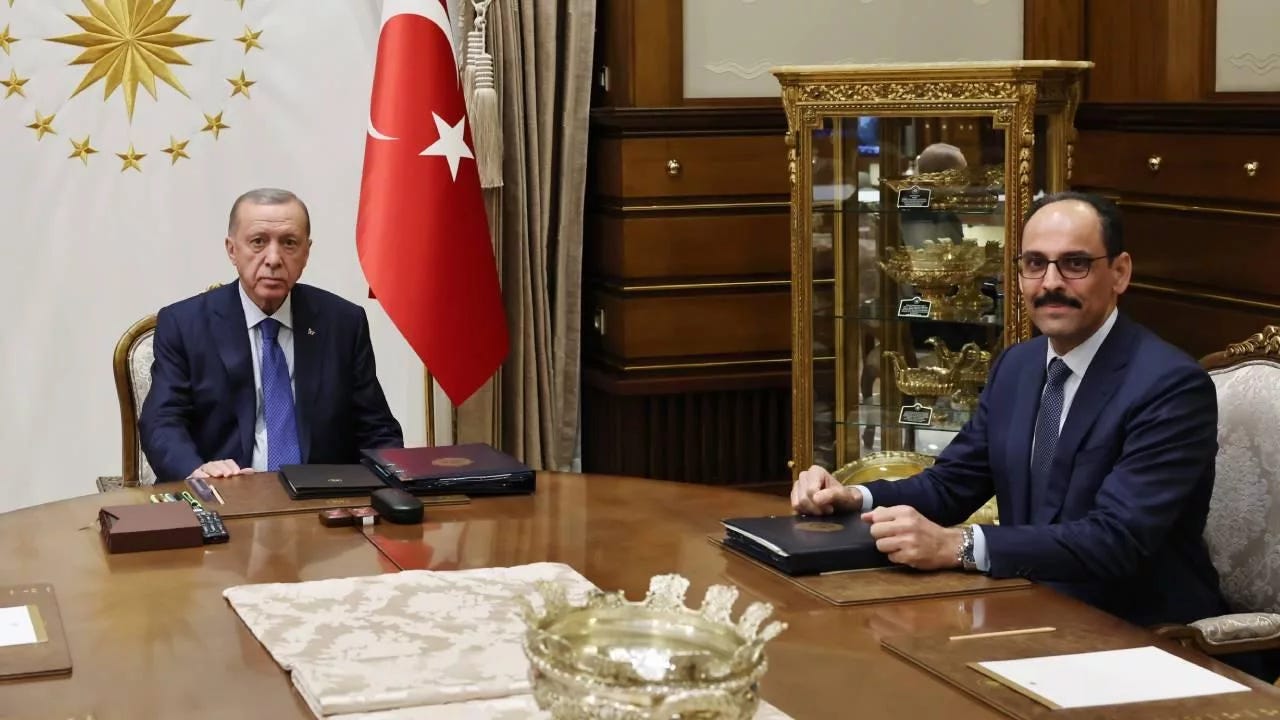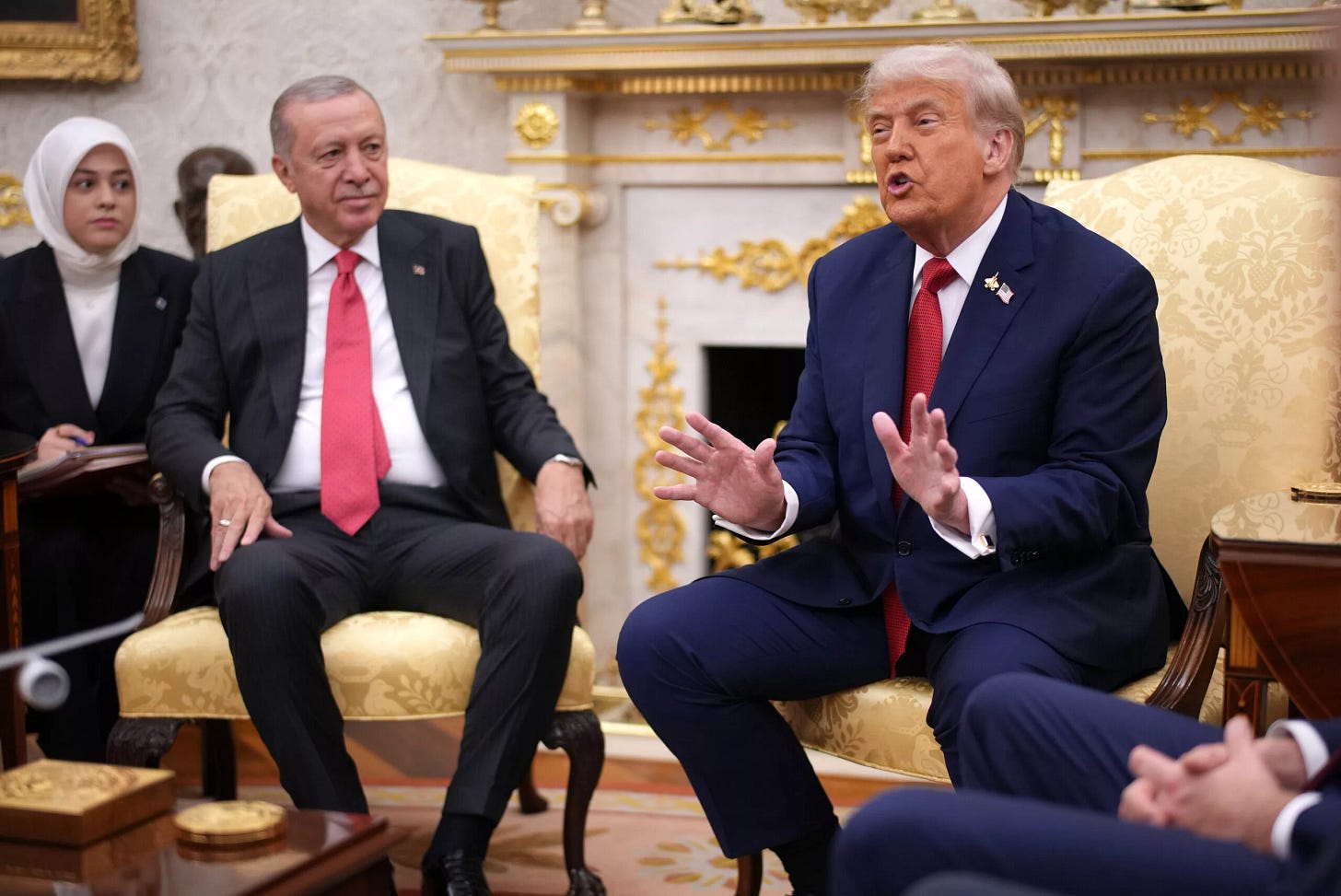
The Turkish government’s recent announcement of its readiness to send teams from the Disaster and Emergency Management Authority (AFAD) to Gaza has coincided with growing Israeli concerns over Ankara’s increasingly assertive role in ceasefire negotiations.
These anxieties stem in part from the direct involvement of Turkish intelligence, which has emerged as a key player in the negotiations a development that has raised questions in Tel Aviv about the scope of Turkey’s expanding influence.
While Ankara has received international praise most notably from former U.S. President Donald Trump for its “constructive” role in managing the crisis, Israeli officials interpret such recognition as a sign of Turkey’s intent to become deeply involved in Gaza’s security and reconstruction, potentially establishing a lasting presence in the post-war landscape.
These fears are further compounded by Hamas’ insistence on including Turkey alongside Egypt and Qatar as one of the guarantors of any future agreement, signaling a shift in the region’s balance of power.
Has Ankara become a key player in the Palestinian equation? And why does Tel Aviv see Turkey’s growing involvement as a strategic threat beyond Gaza?
Signs of Turkish Influence Rising in Gaza
Turkey’s role in Gaza during the ongoing war has undergone a fundamental transformation from vocal support and political positioning to direct, multi-level engagement. Since October 2025, Ankara has moved from being a bystander to an active participant in crisis management.
Turkish Intelligence Chief İbrahim Kalın joined the political operations room in Cairo, where he facilitated sensitive communications between Hamas and several international actors.
Turkey’s emergence as a credible mediator has been bolstered by a clear political narrative. Foreign Minister Hakan Fidan declared that Turkey was ready to serve as a “guarantor” of any two-state solution-based agreement, signaling Ankara’s desire for a long-term role in the post-war political architecture of Gaza.

Alongside its intelligence operations, Turkey launched one of its largest humanitarian aid campaigns to Gaza in years on October 19. AFAD established a land and sea corridor via Mersin port, passing through El Arish and into Gaza.
Approximately 17 ships, dubbed the “Fleet of Goodness,” delivered over 900 tons of aid coinciding with Ankara’s announcement that it was prepared to dispatch search-and-rescue teams to operate on the ground.
Coordination was entrusted to Mehmet Güllüoğlu, former head of AFAD and Turkey’s former ambassador, reflecting high-level political backing. Turkey is also preparing to send contractors and implementation teams to provide temporary housing, clear rubble, and assist in reconstruction filling a void left by the stagnation of traditional political tracks on rebuilding Gaza.
Simultaneously, Ankara has been quietly working to reframe Hamas politically and in the media, in line with its broader vision for reshaping the rules of engagement in Gaza. Countering the Israeli and American portrayal of Hamas as a terrorist group, Turkey presents the movement as a legitimate Palestinian political actor with electoral legitimacy and popular support part of the internal Palestinian balance, not merely an armed faction.
This approach has been reflected in recent high-level meetings in Ankara with top Hamas leaders, signaling a deliberate normalization of the group’s political role in the Palestinian landscape.
This trajectory has not gone unnoticed in Israel. Yossi Yehoshua, military affairs editor at Yedioth Ahronoth, wrote that Turkey now has a clear interest in ensuring Hamas’ survival, seeing Gaza as a strategic and ideological zone of influence. Despite Israel’s public opposition to Turkey’s involvement in Gaza’s reconstruction, Turkish aid teams are already preparing to enter the enclave.
Why Is Israel Alarmed by Turkey’s Growing Influence?
In Tel Aviv, Turkey’s involvement in Gaza is not viewed as a temporary humanitarian gesture or a fleeting political stance. Rather, it is seen as part of a deliberate, long-term strategy to redraw the region’s power map through its alliance with Hamas using both intelligence and humanitarian tools.
Noa Lazimi, a researcher at the Israeli Misgav Institute, expressed disappointment that the ceasefire with Hamas had effectively returned Turkey to the forefront. She argued that Ankara had leveraged the agreement to position itself as an international mediator and that it would use this role to entrench Hamas and expand its regional reach, posing an early and explicit challenge to Israel.
Elitzur Gluck, writing for The Seventh Eye, noted that the concern about Turkey “is not hysterical,” but rooted in reality particularly given President Erdoğan’s repeated framing of Hamas as a national liberation movement, his vocal support for “our Palestinian brothers,” and even hints at potential Turkish military intervention, as Ankara has previously undertaken in Syria and Libya.
Israeli Orientalist Pinhas Inbari warned in a recent article that Turkey might use its influence in Gaza to push for a maritime strategic presence, including demands for a seaport that could advance its geopolitical aims challenging Greece, Cyprus, and even exerting pressure on Israel via its Mediterranean flank.
He added that Erdoğan himself had hinted at a forthcoming visit to Gaza a move Inbari described as highly dangerous, both symbolically and strategically, as it would signal a potential permanent Turkish political presence.
A Rising Role for Turkish Intelligence
İbrahim Kalın, head of Turkish intelligence, has become a central figure in Israeli media analyses. Ankara’s approach to Gaza is clearly not being managed by conventional ministries but rather entrusted to one of the most powerful figures in its security apparatus.
Baruch Yadid, a correspondent for i24NEWS covering Palestinian affairs, stated bluntly that Turkish pressure enabled Hamas to agree to the ceasefire saying the group responded to Turkish guarantees with “astonishing speed,” underlining Ankara’s real influence over Hamas’ decision-making.
He noted that Hamas leaders had visited Turkey multiple times in recent weeks, reinforcing the notion that Ankara now serves as a deep guarantor with close political ties to the movement.
Israeli reports have also highlighted Kalın’s unique standing in Ankara’s decision-making circles. In a joint report for Globes magazine, Dean Shmuel Elmas and Steve Levny wrote that Kalın was not sent to the Sharm El-Sheikh talks as a routine diplomat, but rather as one of Erdoğan’s closest confidants and a special envoy with a mandate beyond traditional intelligence roles.
They noted that Turkey had appointed Kalın to lead the Gaza file the day after the war broke out—aiming to protect its strategic interests in the enclave. He even declared, “We, Turkey, will participate in the working groups that will monitor implementation on the ground.”
Galia Lindenstrauss of the Institute for National Security Studies emphasized that Kalın is more than a spymaster; he is Erdoğan’s personal envoy for critical regional issues. She cited precedents such as his dispatch to Moscow following the 2015 jet crisis and to Gulf capitals during the Qatar blockade evidence that Turkey blends political and security tools, with intelligence acting as a flexible and powerful arm of statecraft.
Media sources further reported that Kalın didn’t just negotiate but also conveyed albeit indirectly—to Israeli officials that Turkey would maintain a post-agreement presence in Gaza, not only through aid but also by sending hundreds of experts and advisers to participate in reconstruction.
Israel Hayom correspondent Neta Bar also revealed that former President Trump personally requested Erdoğan to use Kalın’s influence to persuade Hamas to accept a US-brokered ceasefire proposal, giving Kalın’s role an international dimension beyond bilateral mediation.
Turkey’s Strategic Gains Through Israel’s Eyes
Israeli media does not conceal its view that Turkey has emerged from the Gaza war as one of its biggest political winners if not the biggest outright. A quick survey of the scene shows that Israel, which had hoped to reengineer Gaza’s internal dynamics to suit its security needs, is now faced with a rapidly evolving reality dominated by Ankara’s confident and assertive presence.
The Israeli outlet Walla put it bluntly, calling President Erdoğan “the biggest winner” of the ceasefire agreement. In an analysis by Gali Elster, the site argued that Turkey had managed to infiltrate the Gaza political scene through the Sharm El-Sheikh talks, joining Egypt and Qatar as a central actor in shaping the truce. It concluded that “the Israeli government has no choice but to accept the new reality even if it finds it deeply uncomfortable.”
This assessment is echoed in Israeli think tanks close to the security establishment. Noa Lazimi of the Misgav Institute for Zionism and National Security stated plainly that Turkey had secured “significant gains” in return.
She noted that Erdoğan’s participation in the talks was not merely technical or symbolic it elevated him to a position where he negotiated on behalf of Palestinians and publicly championed their cause, in alignment with his self-image as a leader of the Muslim world.
This symbolic dimension lies at the heart of Israel’s unease. Oded Ilam, former head of counterterrorism at Mossad, warned of what he called “Turkey’s subversive role,” adding that it is not the size of the role that is troubling, but the ambitions driving it.
Erdoğan, he argued, is openly attempting to revive an Ottoman-style vision under modern garb bolstered by increasingly Islamist rhetoric and his repeated proclamations of “moral defense of Palestine.”
In short, Israel does not view Turkey’s growing influence in Gaza as a passing episode or purely humanitarian endeavor, but as a sign of a broader regional shift. As Israel’s traditional dominance over the Palestinian file erodes, Turkey is rising with a political narrative that is increasingly backed by tangible leverage.
Israeli media and policy analysts are not merely skeptical they recognize a tangible regression in Israeli influence, as a familiar yet formidable rival reasserts itself as a strategic competitor in the heart of the Middle East.





